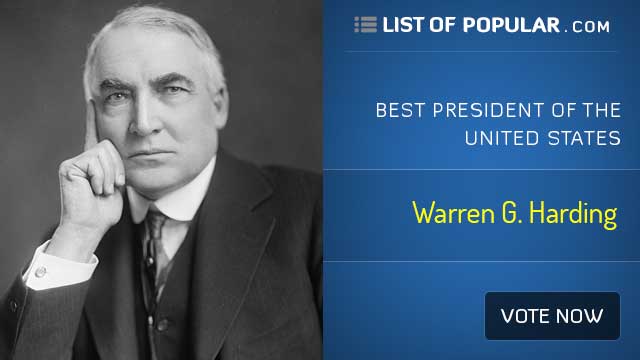The Best US President - Warren G. Harding
Early Life and Political Beginnings
Warren Gamaliel Harding, the 29th President of the United States, was born on November 2, 1865, in Blooming Grove, Ohio. Raised in a small farming community, Harding experienced a modest upbringing. His father was a farmer and a doctor, instilling in young Warren a strong work ethic and a commitment to education. Despite facing financial challenges, Harding's parents encouraged his academic pursuits, and he attended Ohio Central College.
Journalism Career and The Marion Star
After briefly working in the insurance business, Harding found his true calling in journalism. In 1884, he and two partners purchased a struggling newspaper in Marion, Ohio, which eventually became the Marion Star. Harding's editorial skills and dedication turned the publication into a success, providing him with a platform to voice his political views and gain prominence in the Republican Party.
Political Ascent
Harding's political career gained momentum when he was elected as Ohio's lieutenant governor in 1903. He later served in the United States Senate from 1915 until 1921, distinguishing himself as a moderate and consensus-builder. His amiable personality and ability to navigate political waters earned him respect among colleagues and constituents alike.
1920 Presidential Election
The 1920 Republican National Convention saw Harding emerge as a compromise candidate. His "front porch" campaign, characterized by speeches delivered from his home in Marion, emphasized a return to normalcy after the tumultuous years of World War I. Promising stability and a respite from progressive reforms, Harding secured a landslide victory over his Democratic opponent, James M. Cox, in the general election.
Presidency and Domestic Policies
Harding's presidency, which began in 1921, aimed to address the social and economic challenges facing the nation. He implemented pro-business policies, including tax cuts and reduced government intervention, to spur economic growth. However, his administration faced criticism for corruption scandals such as the Teapot Dome scandal, which tarnished his legacy and implicated some of his closest aides.
Foreign Policy and International Relations
Harding sought to prioritize diplomacy and international cooperation. He convened the Washington Naval Conference in 1921, a landmark event that aimed to prevent an arms race among the major world powers. The resulting agreements limited naval construction and established guidelines for disarmament, contributing to a period of relative stability in global affairs.
Legacy and Death
Warren G. Harding's presidency, though marred by scandals, witnessed notable achievements in areas such as economic policy and international relations. His untimely death on August 2, 1923, during a trip to San Francisco, cut short his time in office. Harding's legacy remains complex, with historians debating the extent of his involvement in the scandals that unfolded after his death and the overall impact of his presidency on the nation's trajectory.
Conclusion
Warren G. Harding's journey from a small-town newspaper owner to the President of the United States reflects a unique chapter in American history. Despite the controversies surrounding his administration, Harding's contributions to diplomacy and efforts to restore stability in the post-World War I era leave an indelible mark on the nation's past.
This biographical overview provides a glimpse into the life of a leader whose presidency, while marked by both accomplishments and scandals, remains an integral part of the early 20th-century political landscape in the United States.

